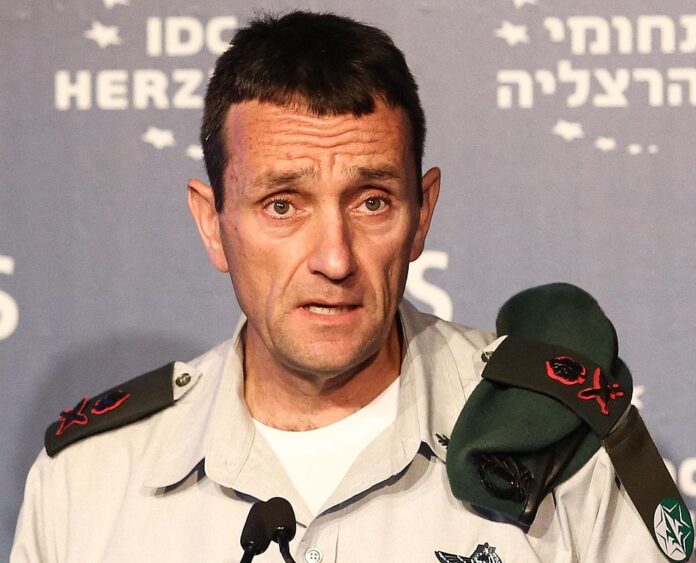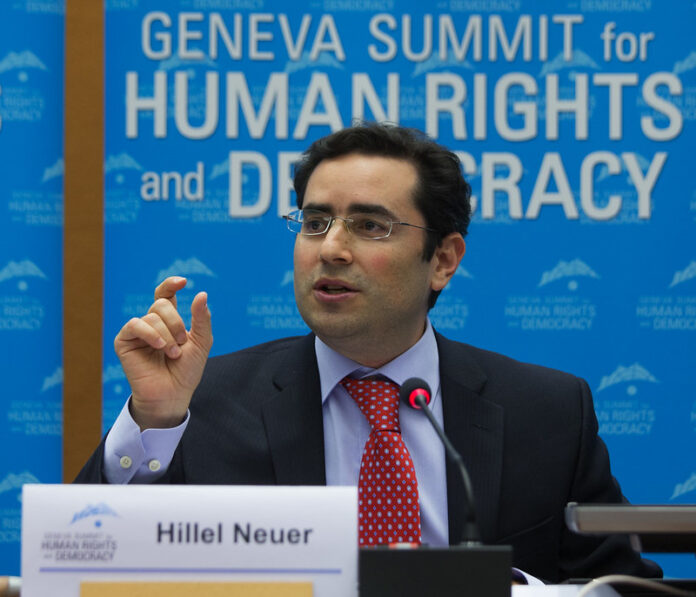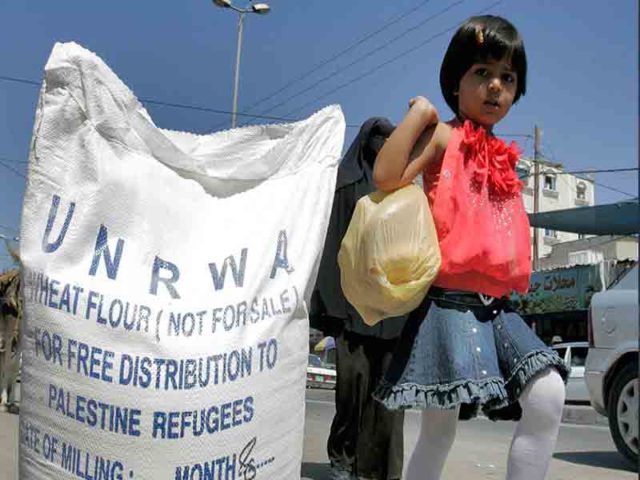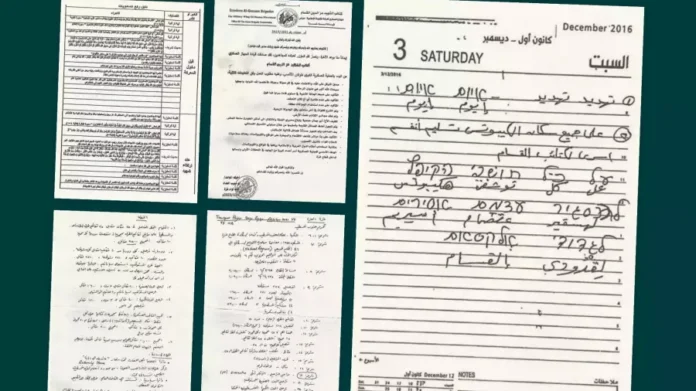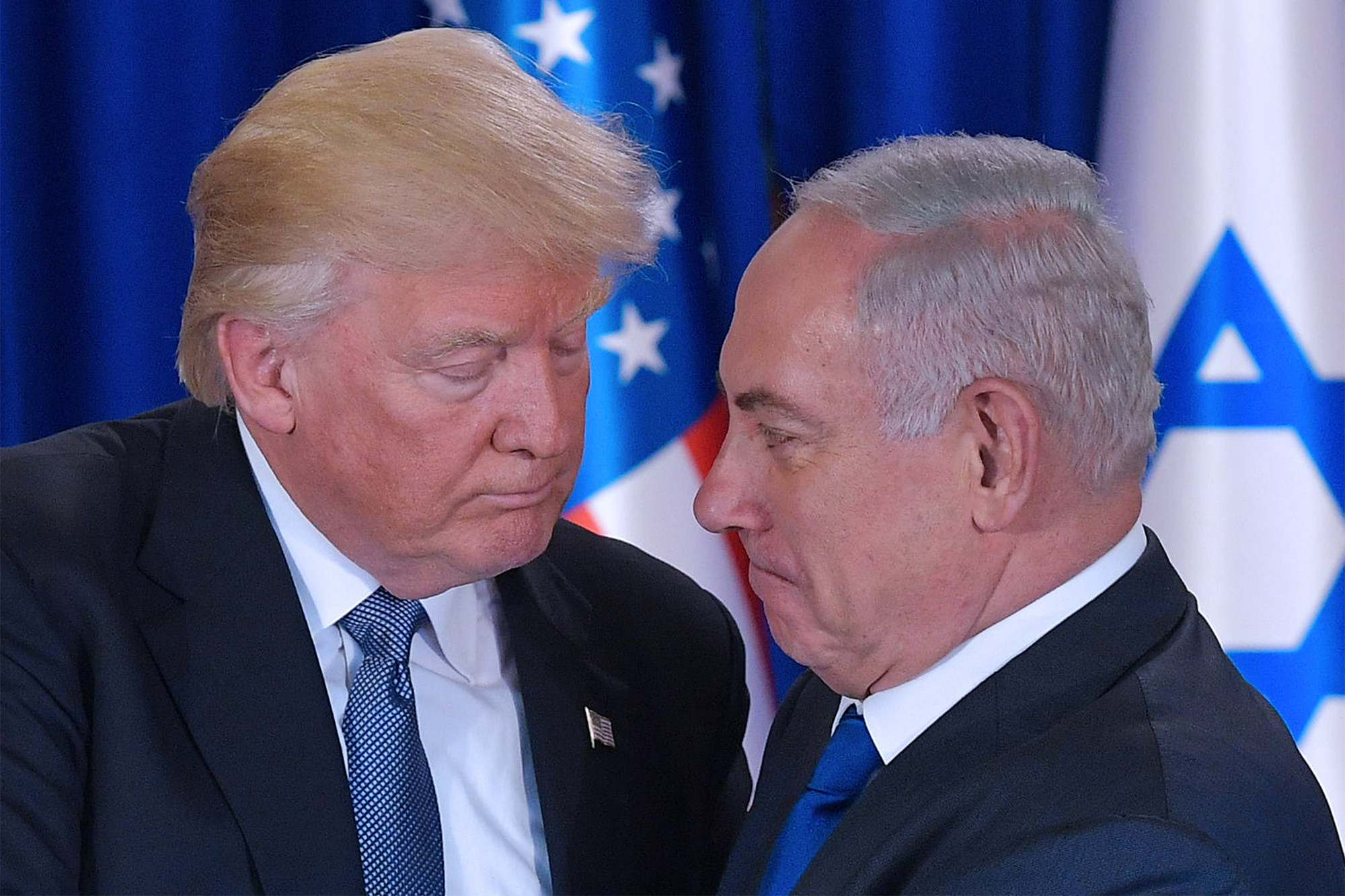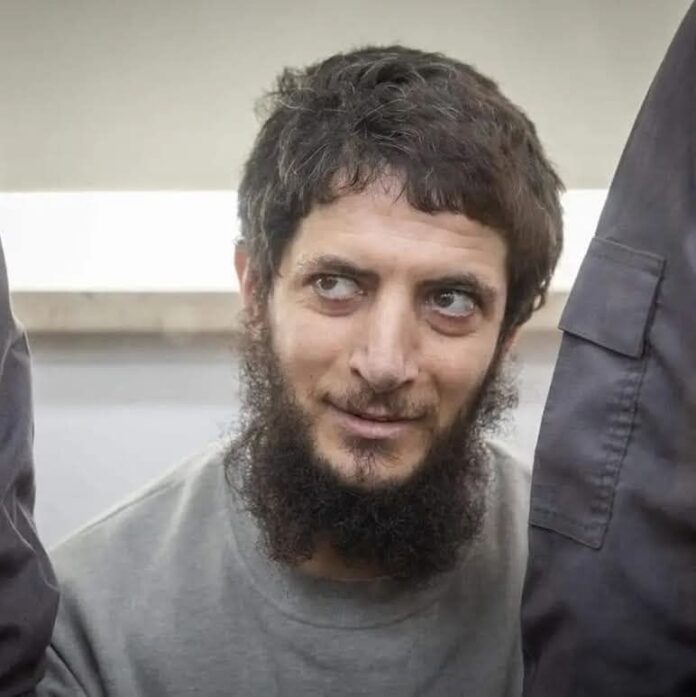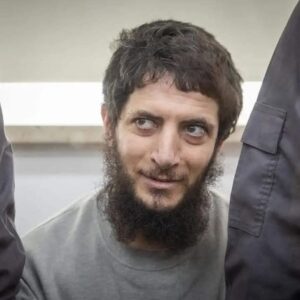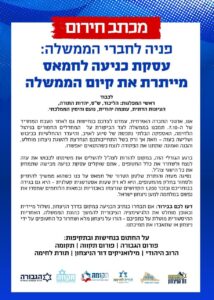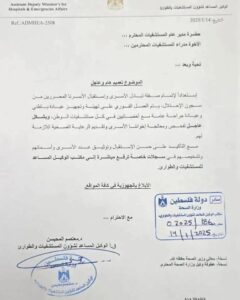Ran Baratz, who teaches military doctrine at the IDF’s National Defense College and founded Mida, an online Hebrew-language Commentary-like magazine, raises no objections to the ceasefire deal with Hamas—but not for the reasons one would expect. It’s because the IDF can’t win. At least, not with a General Staff marinated in postmodern military doctrine.
Baratz notes that the army’s rank-and-file is second to none, but the General Staff’s lack of strategy results in endless targeted raids, where the IDF goes in, kills some terrorists, retreats, then reenters the same area to cope with more terrorists—and lose more of its valiant young soldiers.
“When generals don’t have a strategy, they come up with an overarching strategy of attrition, which doctrinally, is achieved by raids,” Baratz told JNS on Jan. 15.
“They have different names for raids. In Vietnam, it was called ‘search and destroy.’ But it was the same idea. You raid a place, you kill the enemy combatants, with some collateral damage, and you pull back. You could see that in the Second Lebanon War [in 2006], and you can see that today. If they had a good operational plan, they wouldn’t be speaking about raids,” he says.
The General Staff didn’t even have a plan in place to invade the Gaza Strip, Baratz says. They thought it wasn’t needed as Hamas was “deterred.” That’s why it took so long for the IDF to go into Gaza after the Oct. 7, 2023, invasion.
So Baratz says of a ceasefire, “whatever the government thinks best.” His focus is on bigger issues, such as how Israel can rebuild its once-vaunted military institutions.
The main problem in his view is postmodern military doctrine, which afflicts not just the IDF, but Western militaries in general. Postmodern doctrine replaced classical military doctrine as a result of two events.
The first was the advent of nuclear weapons.
Classical military doctrine targets the enemy’s capabilities. Destroy enough of them and the enemy yields. But winning decisive battles no longer seemed relevant when faced with the prospect of nuclear annihilation. The objective changed from victory to deterrence. Deterrence meant influencing the enemy’s consciousness.
Non-military “experts” came onto the scene to develop deterrence strategies by “manipulating the enemy’s state of mind. Social scientists, it was naively assumed, had the relevant tools for this purpose,” Baratz explains in his recent thought-provoking Mosaic article, “What’s Wrong with the Postmodern Military?”
The second event propelling postmodern doctrine was the end of the Cold War.
With the collapse of the Soviet Union in 1991, Western nations believed conventional wars were at an end. They cut their defense budgets dramatically. All that remained were “asymmetrical wars,” i.e. those waged by states against non-state actors.
Deterrence strategies that had been developed to avoid nuclear war were adapted to the asymmetrical battlefield, Baratz says. The stronger side would employ its superior technology. Terms such as “precision-guided munitions” and “shock and awe” became standard.
Israel was initially unaffected by postmodern military ideas, only to be overwhelmed by them in the 1990s with the onset of the Oslo Accords and the “peace process.” Ideas advanced by Israeli Foreign Minister Shimon Peres, in which technology made territory obsolete, were embraced by the national-security establishment, he says.
The Second Lebanon War, or what Baratz calls “the worst military campaign Israel had ever waged,” saw postmodern ideas in action. Two formal commissions charged with examining the IDF’s failure in that war identified misguided military doctrine as the cause.
One of the commissions was headed by former IDF Chief of Staff Dan Shomron. Shomron, complaining of a military approach producing “effects” vs. targeting the enemy’s capabilities, groused, “We used to hit the enemy on the head with a club—and then he felt the effects.”
Notes Baratz, “The postmodern IDF’s approach was to try to reach the ‘effects’ stage without the intermediate clubbing phase, which, unsurprisingly, turned out not to work in the real world.”
Despite the commissions’ findings, nothing changed after the Second Lebanon War as the people responsible for the debacle were left in charge.
Baratz worries that the lessons of Oct. 7 also aren’t being absorbed. The recently released Nagel Commission report, which made recommendations for the IDF’s future budget and force buildup, has proven a disappointment.
JNS recently spoke with Baratz about the Nagel Commission report and what Israel must do if it is to revive its military institutions.
Q: What was the main problem you had with this report? Were you surprised or disappointed when you read it?
A: I was disappointed.
First, I, and many other Israeli citizens, have a major disagreement with the Nagel Commission about the reality on the ground. We see the cost in life, the cost of funding the war, which is huge, the cost to the [IDF] reserves—100,000 people leaving their businesses, leaving their jobs—and you don’t have a decisive outcome. From our perspective, the reality is far from what we would like to see.
But from the Nagel Commission’s perspective, we’ve had a major achievement in the last 15 months.
Second, in terms of military doctrine, they still think concepts like decisive battle, a maneuverable army and operational plans, which used to be part and parcel of the military profession, are obsolete.

For the last 20 to 30 years the armored divisions, the infantry divisions were insufficiently maintained and ill-equipped. From the Nagel Commission’s perspective, it’s not the major effort that we need to invest in. They actually say it—if we’re going to invest in increasing some capabilities in the army, it will wait five years.
Q: To what extent is [Prime Minister Benjamin] Netanyahu responsible? Is he aware of the problem in the army?
A: He’s aware but he shares the same mindset.
The commission had only one ground forces representative. He left the army more than 20 years ago. That is [Brig. Gen. (res.)] Effi Eitam. He was the only one on the commission who has led a division. But Netanyahu is a special operations guy. And that’s why he finds this talk convincing that we don’t need all those ground forces, maneuverability and operational plans. We fight guerrilla wars. So we need special operations, and we need, specifically, air power if we want to fight Iran.
Q: Was there anything good in this report?
A: No, this report was compiled more by economists than military guys. So I thought if there was one good thing that could come out of this report, it would be ways to make the budget more efficient, because there is so much waste and so much money goes to the wrong places. And when I say wrong places, I mean places that do not contribute to victory in war. But the report does not save one shekel; it only adds 200 billion shekels [$56 billion] to the current budget.
Q: The Nagel Report seemed to contradict itself. It said Israel can never base decisions on the assumption that the enemy is deterred. Then it said it’s important to regain deterrence, but “a new and updated deterrence.”
A: I completely agree on the contradiction that you found. It’s obvious that the report incorporates the views of different people. I would say that the anti-deterrence paragraph was written by Effi Eitam and that the other 11 members of the commission thought that deterrence is a very important concept.
When do you need the military? For the moment that deterrence fails. So the military shouldn’t be allowed to think about deterrence. It should live by the assumption that deterrence has failed and now it is required.
As long as the enemy understands that your military is capable of winning, they are deterred. It’s a byproduct of your actual war abilities. You do not deter your enemy by persuading him and by psychological effects. The commission is completely postmodern in this respect.
Q: You teach at the IDF war college. Are you introducing any of the ideas you presented in your essay to your students?
A: Yes, I teach military doctrine. I focus on younger officers because I think the old ones are less open to new ideas. If I have some success, we will see it in five to 15 years when they start climbing up the ranks.
Q: What are they teaching at these colleges in terms of military doctrine?
A: Currently, the problem is that they focus on tactics relevant to an officer’s coming command. So they don’t develop any kind of strategic, what I call in the essay “operational art.” Officers should start thinking operationally even when their task is just one aspect of the operation.
Q: Does the General Staff recognize its failure on Oct. 7? Do they understand that it has to do with military doctrines they’ve adopted?
A: No, the revolution in military affairs was so profound that the children of the revolution are unaware they are revolutionaries. They don’t grasp that there was a significant change. It’s a provincialism and ignorance, a lack of curiosity and lack of professionalism.
Q: You would assume that what they do is study war.
A: There are many people in Israel, most in their 60s and 70s, who studied military history and who taught the operational art, or strategic military strategy. They will all say what I’m saying. That the intellectual aspect of war has been neglected in Israel.
Q: From what you say, the higher the rank the more we see a postmodern approach to war. How is it that the most promising young cadets then come to adopt those ideas?
A: There is a promotion funnel. Up until the 1990s, if you were a young officer with a lot of initiative and charisma, you didn’t wait for orders. You did what you had to do on the spot. Now they’re looking for officers who follow the rules, who look for approval for every step that they take. So over 25 to 30 years, almost all the officers will have that character. The army is young and people in combat positions retire by 40 or 45.
Q: Not only did Israel’s military fail to prepare for the possibility of an Oct. 7, but you say it had no plan to invade Gaza, which is why it took so long before it entered. How does the General Staff spend its time if it’s not preparing for such eventualities?
A: Everybody thinks a general wakes up thinking: “What happens in case of an attack?” But, actually, they haven’t for a long time. It’s a question that shows you how deep the problem is. They don’t do that.
Q: Israel’s failure in the Second Lebanon War put into stark relief the misguided doctrines that the IDF was operating under. And you show that even with two formal commissions identifying those failed doctrines, nothing changed. Is that what we can expect this time too?
A: So far, I would say yes, because you can’t fix a problem that you don’t admit to.
The younger generation understands that something’s not working. They keep getting sent on the same missions. The real challenge is keeping them in the army, because they have a complete distrust of the General Staff. The new defense minister must make it his top priority to keep these young people in.
Q: How do you change the system? Is it enough to remove the people responsible?
A: No, but the advantage of the security establishment is that it’s very hierarchical. You have a defense minister and you have a chief of staff, and their decisions trickle down. So if we can find a good defense minister, and he gets a good chief of staff who understands that he needs to make major revisions, then in a few years, you can have a major change.
One problem with commanding officers in Israel is that they disrespect knowledge—a bravado sort of thing. We are not intellectuals. We are doers. And, actually, if you know any military history, you understand that all the great military commanders were ardent students of war.
Q: Do you see Hamas surviving this war? And what would that mean for Israel?
A: Hamas is surviving this war. Although it’s the most visible threat, it’s not the major issue that we need to confront. We need to rebuild our security institutions. Hamas was never an existential threat. It’s a major terrorist organization, but there are actual existential threats, military threats, that Israel currently is unable to confront. So we need to elevate as fast as possible our military abilities, contrary to what the Nagel Commission thinks.
Q: Was the ceasefire with Hezbollah a good idea?
A: It was a terrible idea. This wasn’t an Israeli decision by any stretch of the imagination. This was [President Joe] Biden forcing Israel to stop. We knew this would happen. Operationally, we should have achieved much more before we were required to stop and we achieved a lot, but not as much as we should.
Q: Could letting Hamas survive be more dangerous than we think?
A: I don’t think so. They had a major success on October 7. That cannot be turned back. And then they waged a defensive kind of war for many months, and the IDF didn’t decisively defeat them. So this is already established fact in the Muslim world. It’s not a good fact for us, but again, to overturn that, you don’t continue in an indecisive way. It doesn’t help to change that image.
Most nations, when they are surprised and realize that their military institutions are failing them, do what they can to fix the institutions. This is what we need to focus on. Then let them try again, and we’ll come with a real army, and we’ll do what a real army can do with proper doctrines, proper training, proper equipment, proper plans, and they will regret the day that they were born. Continuing with the same kind of raids will not change anything.
We need to rebuild power, not the image of power. Then, when we have power and we start projecting it, the image will change. It’s not a game of perception. It’s a game of power. And this is where we need to focus our attention.





